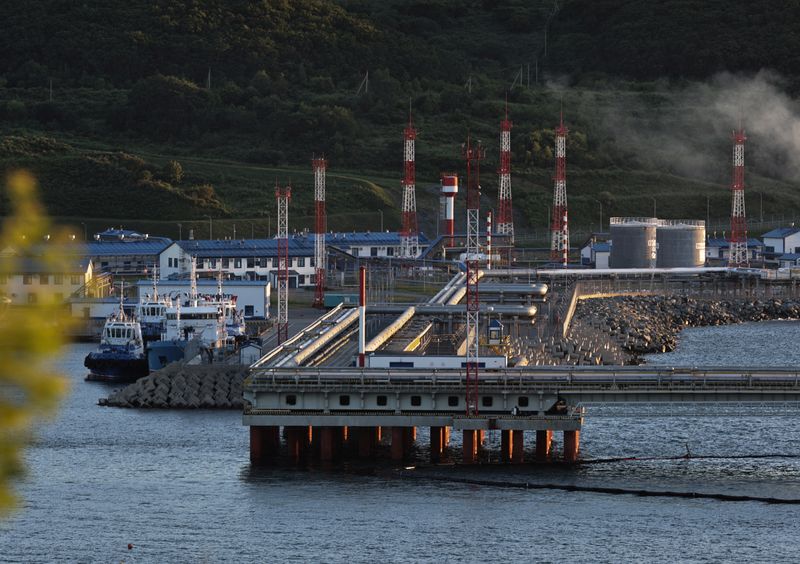Oil rises on ousting of Syria's Assad, Chinese monetary policy
By Arathy Somasekhar
HOUSTON (Reuters) -Oil prices climbed more than 1.5% on Monday on higher geopolitical risk after the fall of Syrian President Bashar al-Assad, and as top importer China flagged its first move towards a loosened monetary policy stance since 2010.
Brent crude futures were up $1.17, or 1.7%, to $72.30 per barrel at 12:50 p.m. ET (1451 GMT). U.S. West Texas Intermediate (WTI) crude futures were up $1.34, or 2%, to $68.55.
"Events in Syria over the weekend could impact the crude market and increase the geopolitical risk premium on oil prices in the weeks and months to come amid yet more instability in the Middle East region," said Jorge Leon, Rystad Energy's head of geopolitical analysis.
Syrian rebels said on state television on Sunday they had ousted Assad, ending a 50-year family dynasty and raising fears of more instability in a region gripped by war.
While Syria is not a major oil producer, it holds geopolitical clout due to its location and ties with Russia and Iran, and mixed with the tensions elsewhere in the region, the regime change has the potential to spill over into neighbouring territories, Leon said.
In early signs of disruptions in the oil market, a tanker carrying Iranian oil to Syria turned round in the Red Sea to head away from its original destination, ship tracking data showed.
It could also have ripple effects through Russia and Iran, which were allies of Assad's, Dennis Kissler, senior vice president of trading at BOK Financial.
Meanwhile, China will step up "unconventional" counter-cyclical adjustments, focusing on expanding domestic demand and boosting consumption, state media Xinhua reported, citing a readout of a meeting of top Communist Party officials, the Politburo.
China's growth has stalled as a slump in the property market has hit confidence and consumption. Loosening policy refers to actions by a central bank or government, such as increasing money supply, lowering interest rates, and implementing fiscal stimulus, to boost growth.
"We see a commodity price boom if China indeed follows through with the promises of looser monetary policy and the possibility that they will do whatever it takes to stimulate the economy," said Phil Flynn, senior analyst at Price Futures Group.
China's slowdown was a factor behind the decision of oil producers' group OPEC+ last week to postpone its plans for higher output until April.
Weighing on prices, leading exporter Saudi Aramco (TADAWUL:2222 ) on Sunday reduced its January 2025 prices for Asian buyers to their lowest level since early 2021, as markets worried it could signal weak demand.
Source: Investing.com
